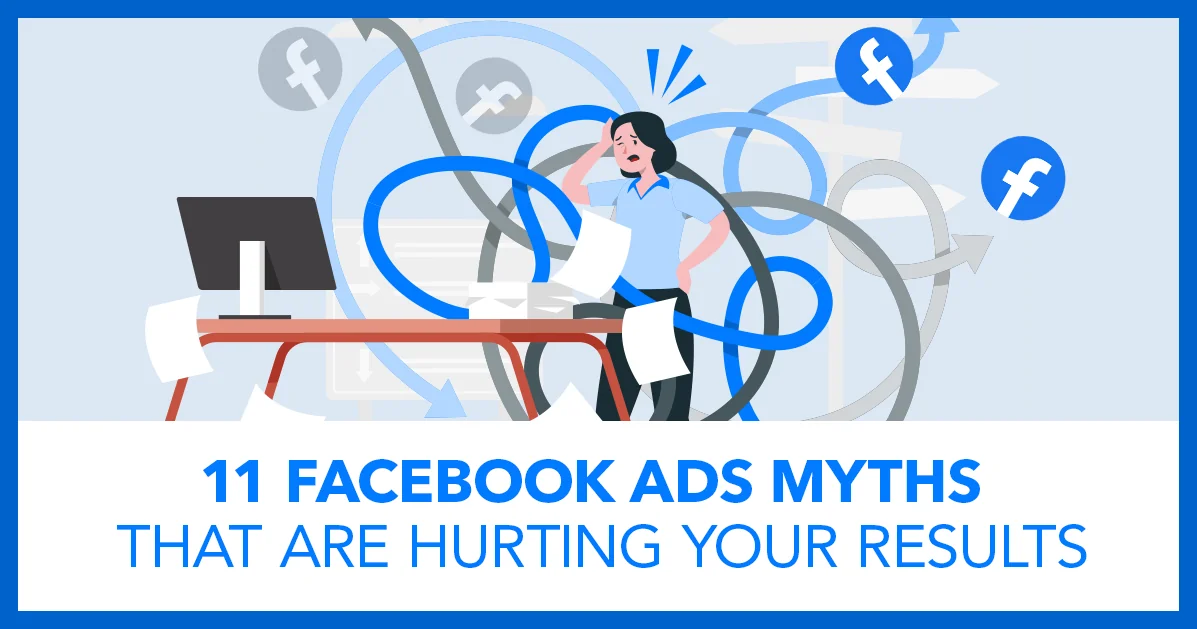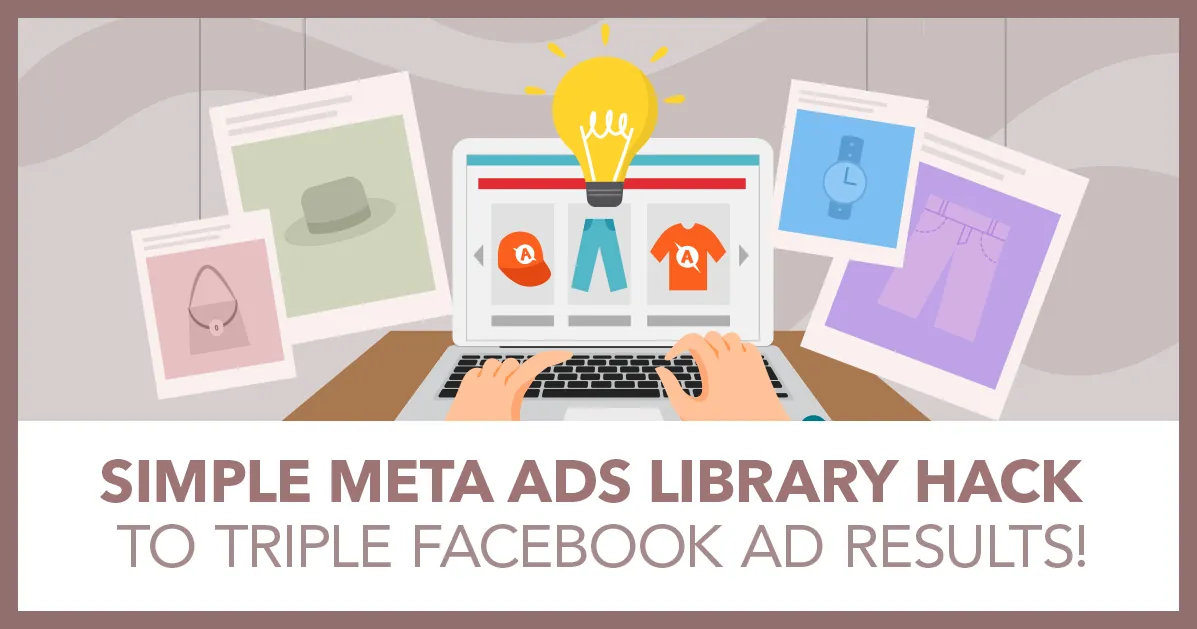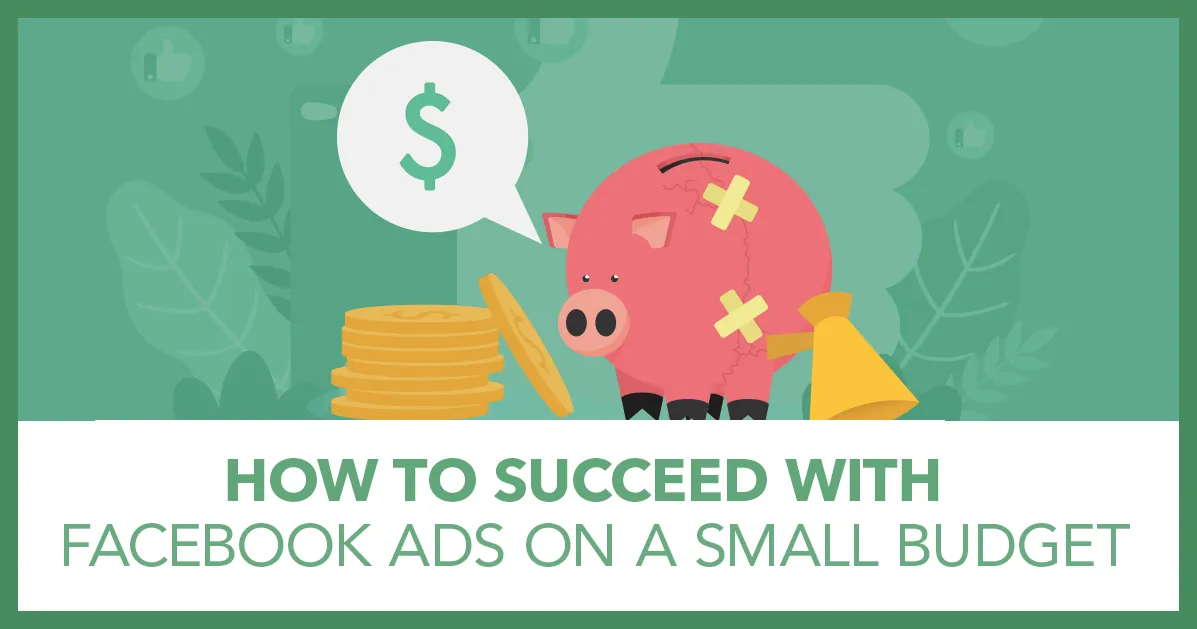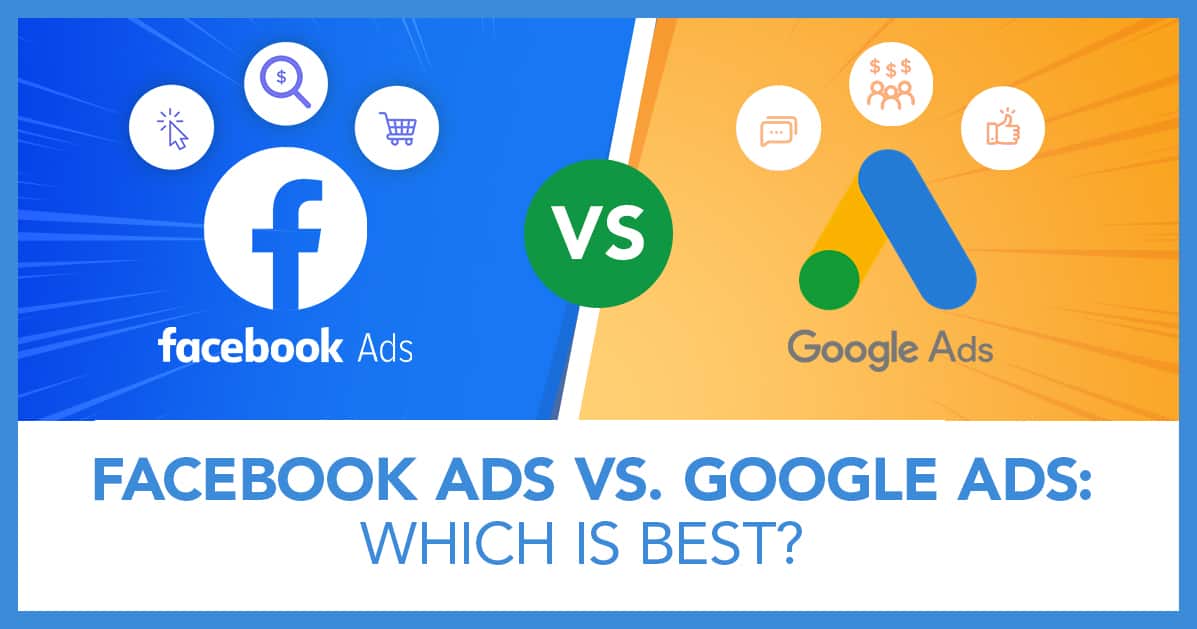
Facebook Ads vs. Google Ads: Which is Best?
There is a huge argument about advertising online. Some people think Google is the best and some people think Facebook is the best.

When it comes to online advertising, these two giants dominate the landscape – Facebook and Google.

On the Facebook (Meta) side there is Instagram and Facebook and on the Google side there is search, display, and YouTube. This makes up a massive part of the online advertising ecosytem.
For businesses looking to effectively market their products and services online, they need to ask: which platform should they focus their efforts on? Is one really better than the other?
This article will break down the core differences between Facebook and Google ads to help you determine the best strategy for your campaign and your business.
Most people know me as the Facebook ads guy, but many people don’t know that I started my digital advertising journey in Google ads as a service and I even have a separate YouTube channel just for Google ads where I cover Google ads tutorials similar to my Facebook ads channel.
So I feel like I’m well placed to talk about the pros and cons of each advertising platform and discuss their merits and weaknesses and which one you might want to use depending on your business model and what types of products or services you offer.
Google Ads
Let’s start with Google ads. Google actually has many elements to it’s platform – display, search, and YouTube.
Search
But let’s focus on search for a moment because that’s a big differentiating factor between Google and Meta.
There is no real search in option in either Facebook or Instagram. So these platforms have very different buyer experiences. Google search has people who are actively searching for a product or service. While Facebook and Instagram are interruption advertising.
Particularly when you sell a high end or expensive product, then having someone actively search for your offer has obvious advantages. Of course, there are some drawbacks to search as well.
Search is more expensive then interruption advertising. You are going to pay more cost per click to get traffic to your website then you do with both other forms of Google Advertising or Meta ads.
The reason is that advertisers see people who are actively searching for a product (also called buying intent) as being more valuable and more likely to convert. That’s why they’re willing to pay more to bid up the price. If you want to advertise in search, then you have to compete with these advertisers.
The higher cost can be a drawback, especially if you have lower average customer value. But if you sell a high ticket item or have high average customer values then it can be well worth it to advertise on Google search.
It’s also important to remember that only about 10% of your market is actively searching at any given time. That means you have another 90% that you are never going to reach through Google search and you need to find other ways to reach them.
Another place where Google search might work, but not fulfill all of your business goals is if you are operating a business that is quite niche. If there’s not that many searches on a monthly basis then you might max out your budget at a thousand dollars a month or a couple of thousand dollars a month.
You can’t scale in search like you can with other areas of Google or with Facebook and Instagram.
Of course, you can always expand to other areas of Google advertising like display which is interruption advertising just like Facebook and Instagram. But, in my experience if you are focused on interruption advertising in your business you will tend to see better results with Facebook and Instagram ads and should probably focus there more.
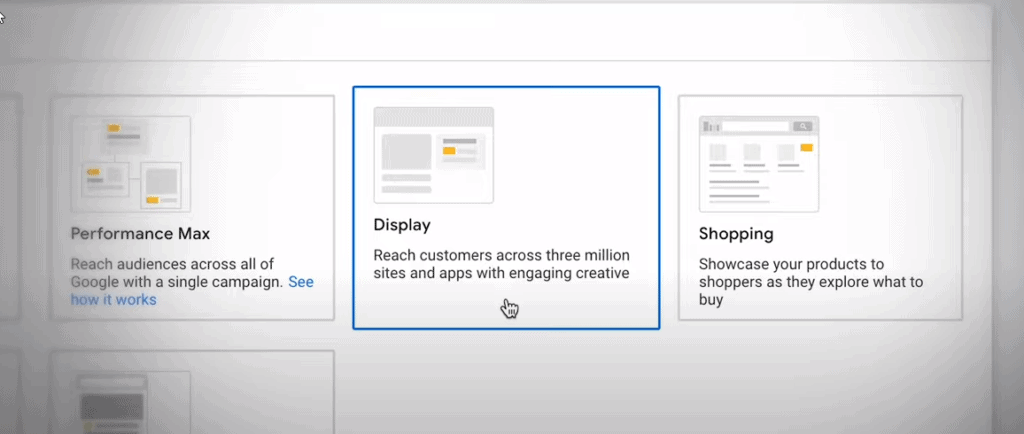
There are, of course, exceptions, but that’s just one of the major differences between the two platforms.
YouTube
An interesting case within Google ads is YouTube advertising. It falls within the umbrella of Google ads and it operates as a hybrid somewhere between search and interruptions ads. There are in-content elements that are going to function a lot like Facebook and Instagram ads, and then there are ads in YouTube based on search. That makes YouTube a bit of a hybrid model.
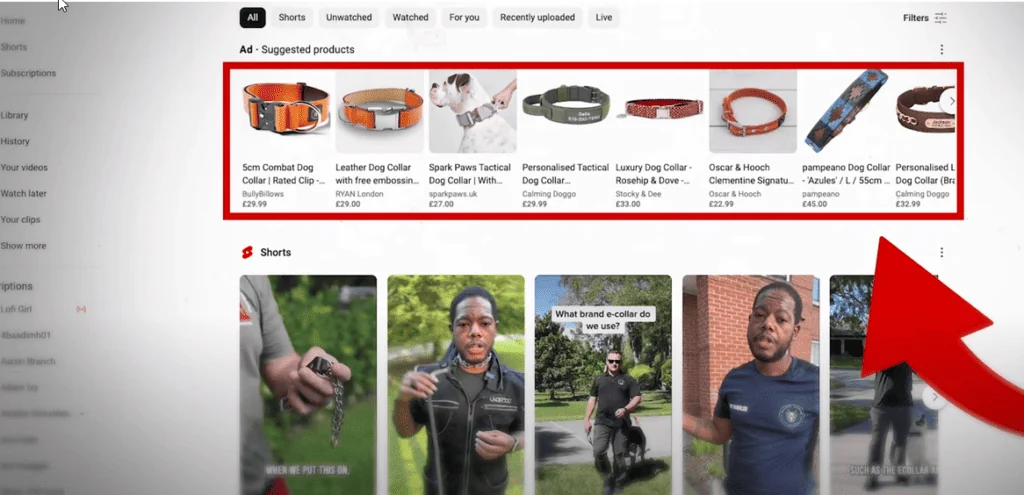
Google is more complicated
Another thing to be aware of with Google ads is that it is more sophisticated and there are more options and different ways of advertising in Google then in Facebook so that can make it more complicated for beginners and when you run ads on Google you run ads on search in a very different way than YouTube and that’s a different way than on the Display Network.
On the other hand if you are trying to learn Facebook and Instagram ads as a beginner then the way you advertise on Facebook is very, very similar to the way you advertise on Instagram. Often it’s just the difference of ticking a box.
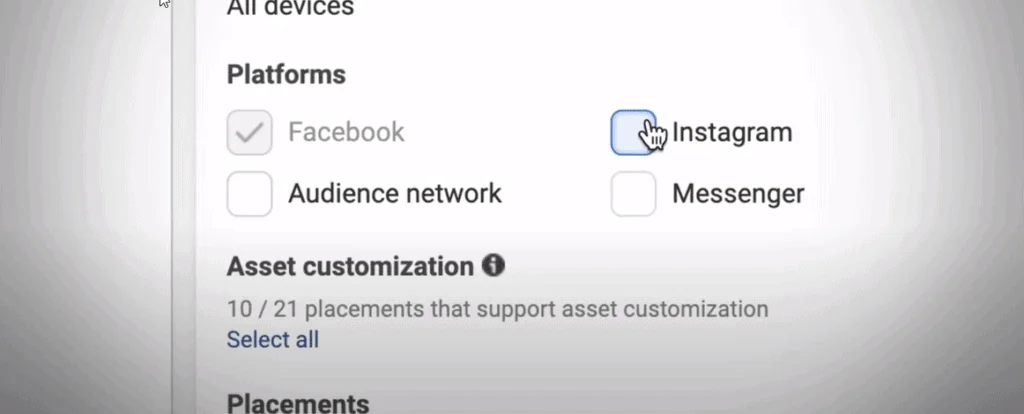
For beginners, they often find Facebook and Instagram ads a lot easier to understand and probably get better results because of that.
Google is trying to change this a bit. Google ads have recently brough in performance Max campaigns. This is where you can just set up one campaign that is then pushed out everywhere.
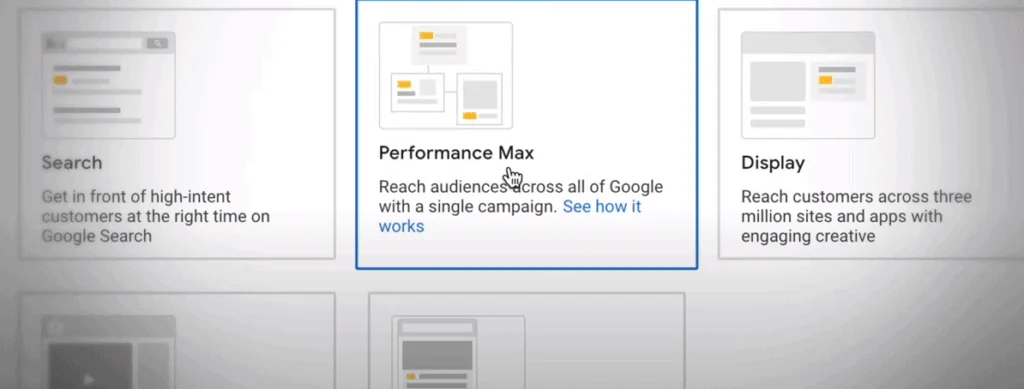
But having worked with many business owners I do think that if you took the average person who didn’t have any experience with Google ads or Facebook ads and they jumped into both ads managers ad accounts they would find the Facebook ads to be simpler and easy to understand.
Google has better customer support
My experience in working in both platforms is that Google has better customer support. It’s not perfect and you can still get your account disabled for no reason and find it really difficult to get back up and running, but their support is nowhere near as bad as Meta ads.
I think this is because of the maturity of the platform. Google ads have been around for a lot longer than Facebook ads and when I first started Google support was just as bad as Facebook’s is now.
Another Awesome Free Facebook Training Resource
There is nothing I like better than to see business owners increase their ROI with Facebook Ads. In order to help business owners succeed with Facebook ads I’ve created a FREE webinar training that you can register for here.
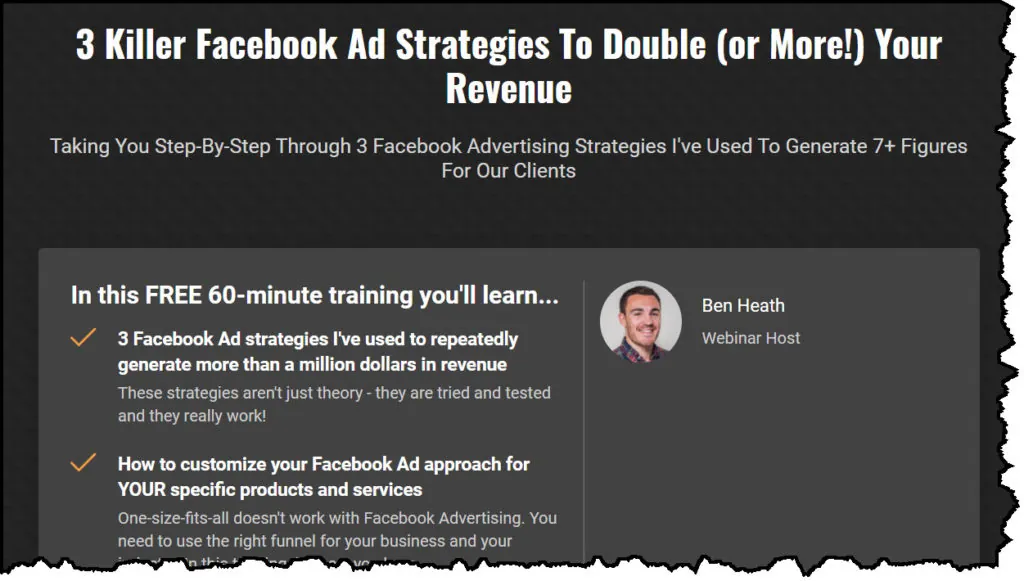
When you attend this webinar you’ll learn:
3 different Facebook ad strategies that we use every day. These strategies have generated millions of dollars in revenue and are tried and proven to work.
How to customize the Facebook ads strategy to your particular business. There is no such thing as a one size fits all approach to Facebook ads.
How Facebook and Instagram have changed and how to adjust your ad strategy to what works in 2023.
Facebook Ads
Now that I’ve covered the pros and cons of Google ads it’s time to cover Facebook ads.
One of the things about Facebook ads compared to Google search is that Facebook ads are very visual. At my agency we often find that food companies, clothing brands, and other companies that have a strong visual component do well on Facebook and Instagram because the platforms really cater to great visuals.

We also find that Facebook ads tend to work better for businesses with low average order values because you are going to pay less for traffic on average in comparison to Google ads if you’re not making that much from each customer.
Now, I don’t want you to misunderstand me. Google ads are great quality. They are just harder to make work if you have a low average order value.
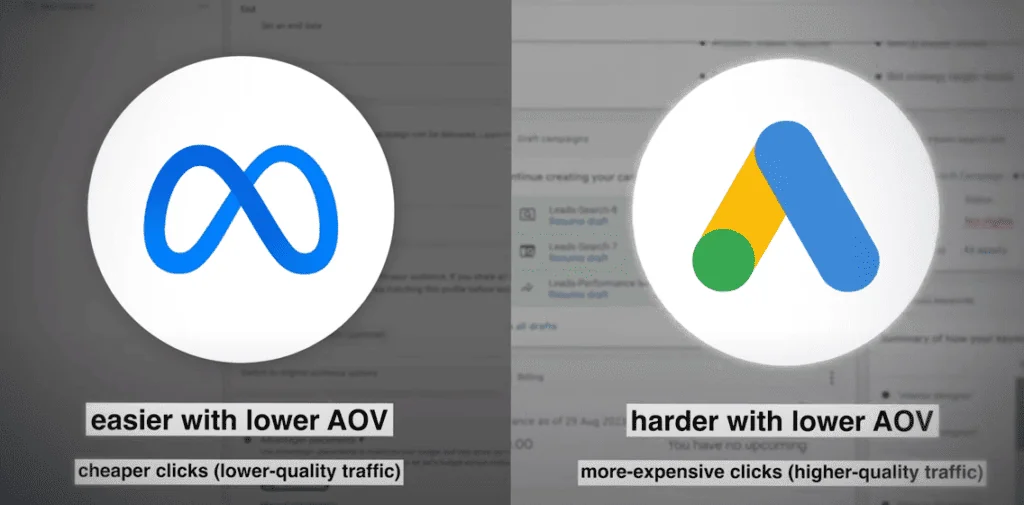
If you do have a high average order value then both Google and Facebook will probably work great for you, so you need to test your offers.
User base vs. Impressions
The user base for Google ads and Facebook ads are remarkably similar. They both have around three billion users in each case. But something we see on a regular basis in my agency is that Facebook has a lot more impressions available than Google. Because of that Facebook is almost always easier to scale up.
This is particularly true when you are comparing Google search to Facebook ads.
What we see is that when businesses want to get massive exposure they put more of their budget into Facebook and Instagram ads than Google. They’ll normally be advertising on both and we’ve run many ads for clients in this situation, but for scaling the money goes to Meta simply because there is more of a supply.
Building Audiences
This is something that Facebook is great at, but Google doesn’t even have available. If you’ve been advertising for years on these platforms then you can build significant audiences within the Meta platform that can be very valuable in their own right. You’ll get some organic reach, not only on Instagram, but also on Facebook.
You can then market to those people who decide to follow you, like your page and see your stuff.

That audience can help your marketing spend go further over time as you reactivate those people and potentially get them to purchase. I personally believe that is a significant advantage when it comes to advertising on Facebook.
Don’t follow the crowd
Another thing I want you to consider when thinking about Facebook ads versus Google ads is that following the crowd may not be the best approach because when you do that you’re often going to be advertising in a place where the ads are priced appropriately and you want to find scenarios where you re getting a deal.
Let me give you an example. Let’s say you are offering a relatively niche high-end service and you might think I’m going to advertise on Google, particularly on search because that’s where the highest quality prospects are going to come through. And you would be right.
But if you take that same high-end service and advertise it on Facebook you might find that you will have to filter the prospects more but that your cost is going to be much lower overall for customer acquisition.
No matter which platform you use – test.
While there are advantages and disadvantages to each platform, if you are serious about your business you should test the results of both. There’s very limited downside to testing and it could open up a whole new platform to advertise on and help you diversify your advertising spend and platforms. That way if one of them goes down or bans you then you have a back up plan.


